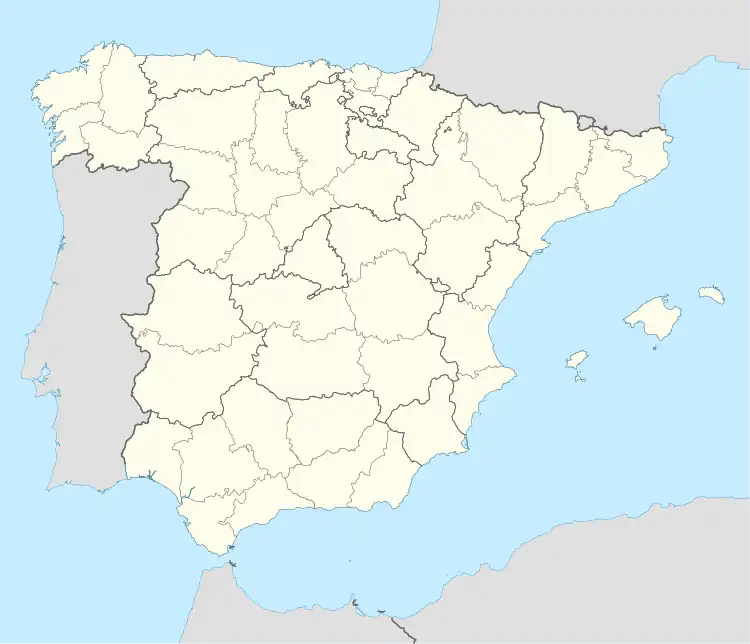Cacabelos | |
|---|---|
 Flag  Coat of arms | |
 Cacabelos | |
| Coordinates: 42°35′59″N 6°43′32″W / 42.59972°N 6.72556°W | |
| Country | Spain |
| Autonomous community | Castile and León |
| Province | León |
| Comarca | El Bierzo |
| Municipality | Cacabelos |
| Government | |
| • Mayor | Sergio Álvarez De Arriba (PSOE) |
| Area | |
| • Total | 32.66 km2 (12.61 sq mi) |
| Elevation | 479 m (1,572 ft) |
| Population (2018)[1] | |
| • Total | 5,132 |
| • Density | 160/km2 (410/sq mi) |
| Demonym | cacabelense |
| Time zone | UTC+1 (CET) |
| • Summer (DST) | UTC+2 (CEST) |
| Postal Code | 24540 |
| Telephone prefix | 987 |
| Climate | Csb |
| Website | Ayto. de Cacabelos |
Cacabelos (Spanish pronunciation: [kakaˈβelos]) is a village and municipality located in the region of El Bierzo (province of León, Castile and León, Spain). According to the 2020 census (INE), Cacabelos has a population of 4,996 inhabitants. It is well known for its wines.
It is one of Galician speaking councils of Castilla y León.[2]
History
During the Peninsular War, the village, and more especially, its bridge over the river Cua, was in the line of retreat taken by Sir John Moore's British army to A Coruña, and was the site of the Battle of Cacabelos (3 January 1809),[3] a minor battle.
References
- ↑ Municipal Register of Spain 2018. National Statistics Institute.
- ↑ Turell, Teresa. Multilingualism in Spain, page 113 At Google Books.
- ↑ Moore, Richard. "Plunket’s Shot: A reconstruction of a famous exploit in the history of the 95th Rifles" Archived 2013-08-02 at archive.today Retrieved 3 August 2013.
42°36′00.00″N 6°43′01.20″W / 42.6000000°N 6.7170000°W
This article is issued from Wikipedia. The text is licensed under Creative Commons - Attribution - Sharealike. Additional terms may apply for the media files.
